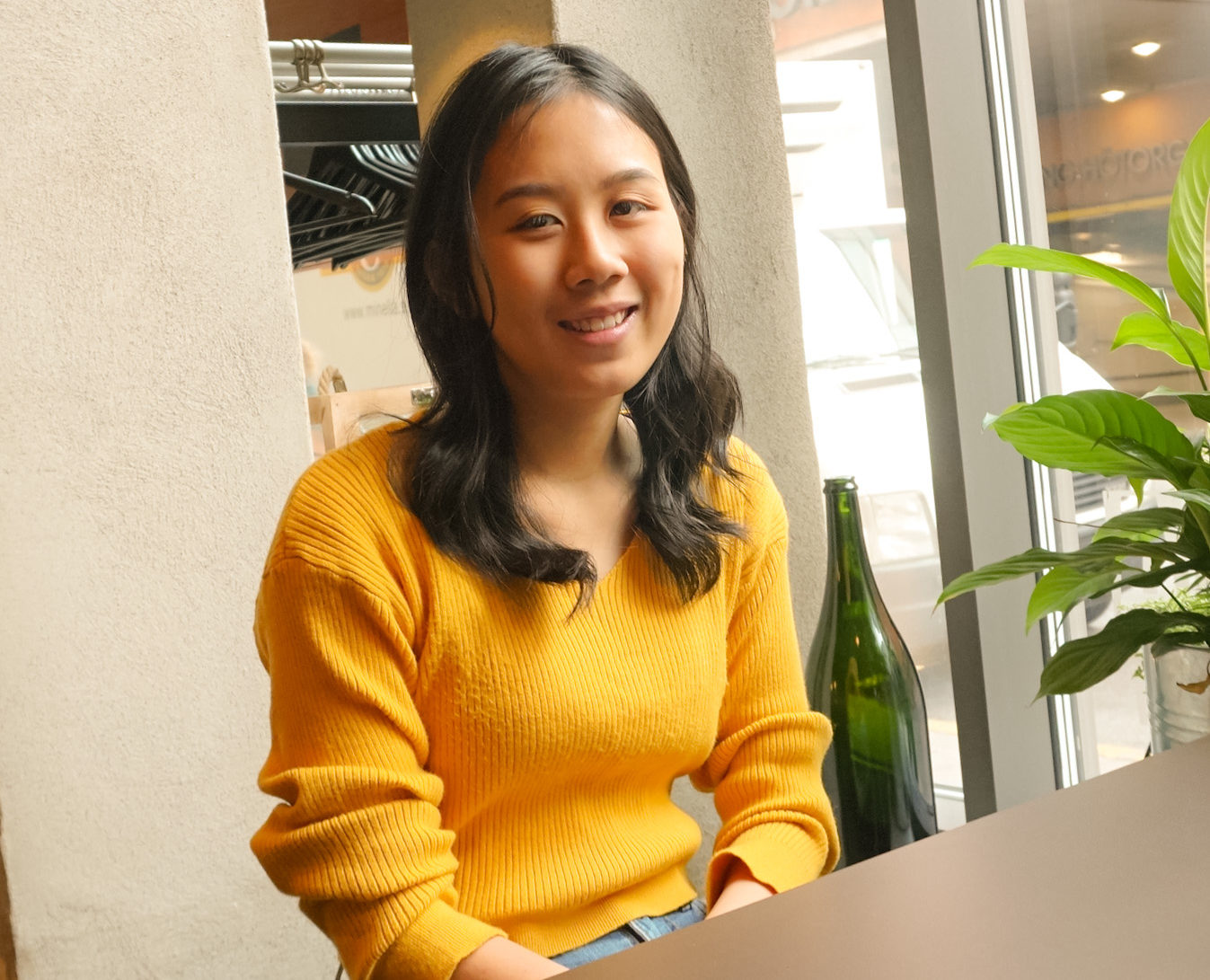Nga Nguyen from Australia
Who is ordinary Nga? What’s a normal day and what do you like to do?
Nga: I’m from Sydney, Australia, I have a little sister who’s ten and her name’s Joey, like the kangaroo Joey. In my spare time I like to go shopping with my friends or walk my dog and play piano sometimes. I used to take lessons, but now it’s just when I feel like it. I am originally from Vietnam but moved to Australia when I was three and I canspeak both Vietnamese and English. I like travelling and this is my first time in Europe, so it is very nice to be here.
How did you hear about SJWP?
Nga: Through my dad and a colleague of his. Since I’ve been entering competitions before and one of my dad’s colleagues knew about me and then also knew about SJWP, he told my dad and my dad told me.
How did you get the Idea for your project?
Nga: Well, on a holiday to Vietnam we did a lot of traveling through the countryside and I noticed there’s two big problems. The lakes were really full with algae and so I’ve known about eutrophication for a while and that was what my previous project was on, but I noticed a new problem. There was a lot of agricultural waste products being burnt because that was how farms disposed of them. This was creating greenhouse gas emissions and then I thought: why can’t we treat waste with waste or something like that and try and minimize the environmental impact in the agricultural industry?
I’m sure you’ve had to go through quite a lot of fear or challenges. Do you have any specific challenges you can remember?
Nga: Initially, I was worried because some of my initial results they were not as good as I’d hoped them to be. But it’s a matter of keeping on trying different approaches to the method and persisting, because with science it is never going to work, or you’re never going to answer the question, the first time. You just continue on, accept it, but it also means one possible option has been eliminated.
In terms of your project, was there a specific teacher or particular person that really helped you?
Nga: I talked to my teacher about it, but most of the project was done at my house and so I tried to contact people who I had previously worked with and asked them things like: “what do you think about this?”.
What do you think is most important about having a mentor or somebody you can turn to?
Nga: I think it’s motivating that someone is supporting you and also knowingthat if you have any really specific questions, that sometimes I can’t answer, then it’s nice talking the problem out. You get new ideas and things like that. My parents are obviously always very supportive.
You might have gone through some fears and challenges, but I’m sure there were also some pretty great moments. Are there any moments you remember very clearly?
Nga: I really like and enjoy writing the conclusion discussion of a report. You see all the bits falling together. Taking the little bits and putting them together at the end is nice because you double the hard work by putting it down on paper. I also like presenting to present and share it to people.
How did you feel when you heard your name at the national contest?
Nga: I wasn’t expecting it. Whenever I do these competitions I just do it because it’s fun. I’m not a competitive person. It’s for fun and to build your confidence and skills. It’s also a nice surprise.
You got your idea in Vietnam, and now you’re here in Stockholm, how would you say the competition has impacted you?
Nga: I think it’s been really eye opening to speak with people from everywhere in the world and hearing their stories and about their lives and I really hope to just talk to them. And then their projects — it’s just really inspiring to see that everyone’s got a problem and then solved it and expanded the solution. It’s like a hub of ideas which makes us feel more confident in each other and that we are trying to address something.
If you could telepathically communicate with every single person in the world under 35, what would you want to say to them?
Nga: I would say “make little changes”, because I know lots of people can’t make big changes, but they can make little changes. I think that’s what we’re lacking sometimes, the little changes. If you leave the room, turn off the light and just double check, or buy one bottle and stick to that, or try not to use as much plastic. Do little changes and be more aware. You are a part of it.
More information about Nga and her project can be found here.
Interviewer: Edward Veem
Interviewee: Nga Nguyen
Country: Australia
Photographer: Lila Roumeliotou




